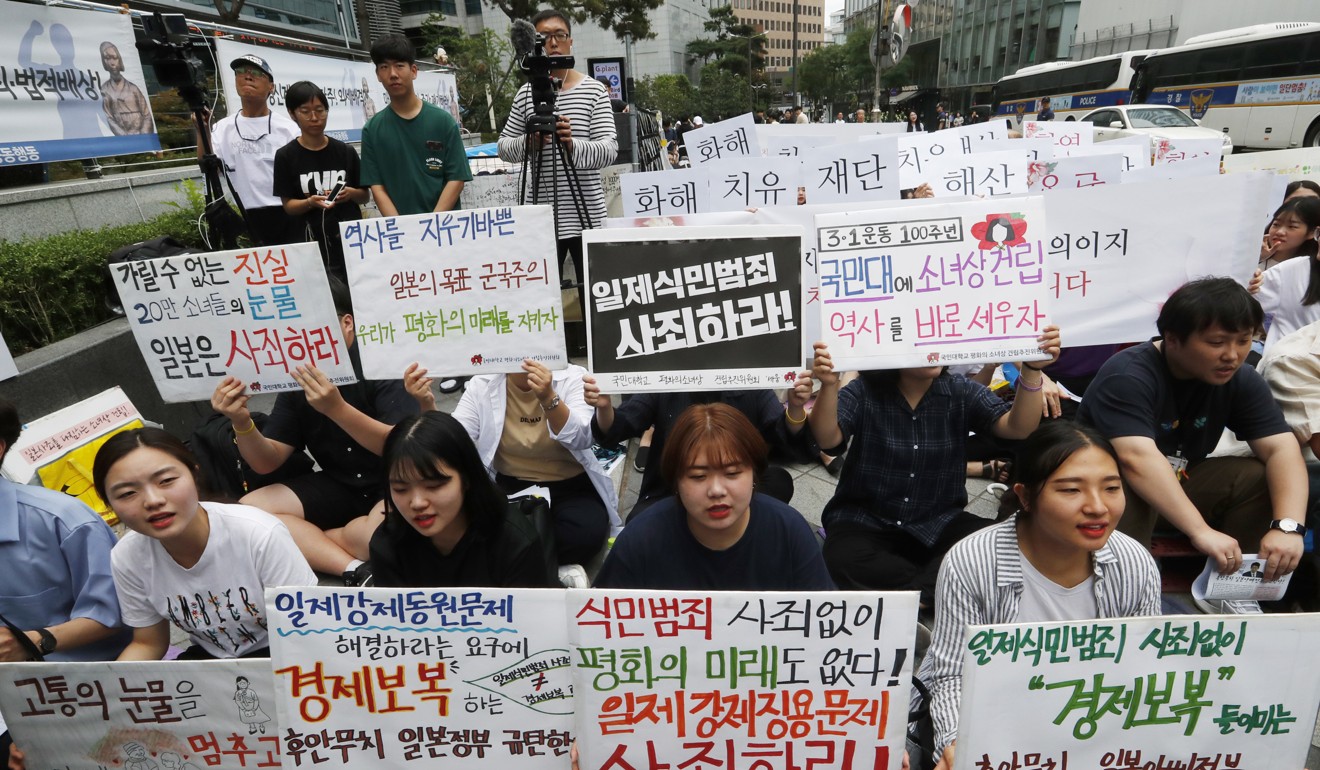
South Korea’s Moon warns Tokyo against taking trade dispute into ‘dead-end street’
- President Moon Jae-in met with senior executives from 30 leading companies and criticised Japan for imposing export curbs on three materials for political purposes
- Moon said he would ‘drastically’ increase spending and support domestic production to reduce dependence on foreign suppliers
How China can win a ‘trade war’ between Japan and South Korea
“It’s hardly desirable in terms of bilateral friendship and security cooperation for the Japanese government to take measures aimed to damage our economy for political purposes and make groundless remarks linking the moves to sanctions against North Korea,” Moon said.
“No matter how this episode concludes, we must turn it into an opportunity to reduce dependence on foreign suppliers for key technology, parts, materials and equipment,” Moon said.
Moon warns Japan ‘don’t force our hand’ with hi-tech export curbs
“Especially, we must improve the industrial structure depending on a particular state. The government will drastically increase budgets to nurture industries for parts, materials and equipment and mobilise all possible means including taxational and financial measures.”

Japan’s decision effectively removes the preferential treatment previously afforded to exports to South Korea. As a result, exporters will be required to gain permission each time they want to ship, which takes about 90 days.
Yoo Sang-im, a professor of electronic materials at Seoul National University, said it would be “next to impossible” for South Korea to develop technology to replace Japanese imports.
We must ... reduce dependence on foreign suppliers for key technology, parts, materials and equipment
“Because of the wide technology gaps and Japan’s intellectual property rights, it would be a daunting task for South Korean companies to develop their own ways that could compete with those of Japanese suppliers,” he said.
“Had South Korean companies found products from Chinese or Taiwanese suppliers satisfactory in terms of quality and prices, they would not have become dependent on Japanese suppliers so much.”
Moon’s meeting on Wednesday was to seek feedback from the leaders on the effects of Japan’s tightened export rules.
The two countries are making arrangements for a meeting in Tokyo on Friday, at which South Korea plans to demand the withdrawal of the curbs while asking Japan about the reasons behind their introduction, according to South Korean Trade, Industry and Energy Minister Sung Yun-mo.

South Koreans call for boycott of Japanese cars, beer
In Japan, Abe’s government is just weeks away from an upper house election on July 21.
Professor Lee Young-chae from Keisen University in Tokyo said the timing of the export restrictions, so close to the election, was no coincidence.
“One issue that could lead to an election win seems to be rallying Abe’s conservatives and consolidating swing voters by showing an anti-South Korea, a tough stance toward South Korea,” Lee said. “And it seems to be working.”
Additional reporting by Reuters and Associated Press
Connect with us on Twitter and Facebook

